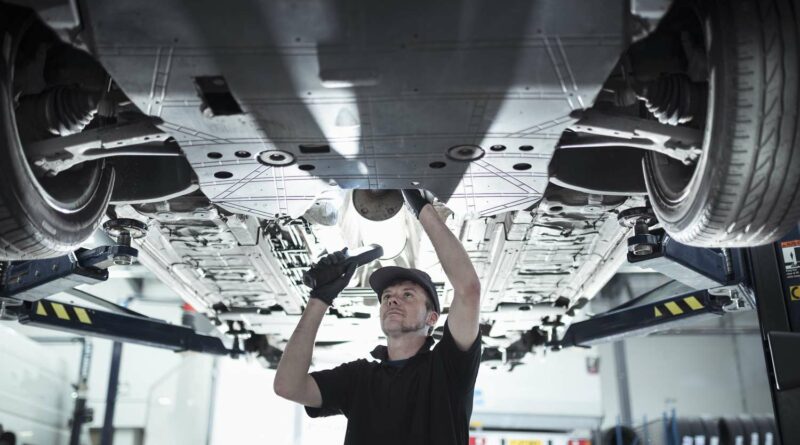When should you replace your automotive battery?
Your car’s battery is one of the most important components of your vehicle. It powers your electrical system, including lights, radio, and most importantly, it starts the engine. However, like all things, batteries don’t last forever. So, how do you know when it’s time to replace it? In this article, we’ll walk through the signs that your automotive battery may need replacing, how long batteries last, and some tips for getting the most out of your current one. If you’re in need of reliable Automotive and Repair Long Island services, it’s always a good idea to consult with a professional mechanic who can help assess your battery’s condition.
Understanding Your Car’s Battery
Before diving into the signs that your battery is on its last legs, it’s important to understand its role. Your car battery stores electrical energy and provides power to the vehicle’s starter motor, making it possible to start the engine. It also helps manage other electronic systems in your car, especially in modern vehicles with a lot of tech. In general, car batteries last anywhere between 3 and 5 years. However, factors like the climate you live in and the type of car you drive can affect its lifespan.
Signs You Need to Replace Your Battery
There are several clear signs that indicate it’s time to replace your car battery. Let’s go over the most common ones.
Slow Engine Crank
If you’ve noticed that your engine is slow to start or cranks for longer than usual, it could be a sign that the battery is losing its charge or is failing. A weak or worn-out battery simply doesn’t have enough power to start the car quickly.
Dim Lights or Electrical Issues
When your battery starts failing, you might notice that your headlights appear dimmer, or your interior lights flicker. Since your battery powers all of these electrical systems, it’s a sign that it’s no longer able to supply the necessary voltage to keep everything running smoothly.
Dashboard Warning Light
Most modern cars have a battery warning light on the dashboard that illuminates when there’s an issue with your battery or charging system. If you see this light come on, it’s important to have the battery tested as soon as possible to avoid further complications.
The Battery Is Swollen or Leaking
A swollen or leaking battery is a serious issue. When batteries overcharge, they can swell and even leak acid, which can damage your car’s electrical components. If you notice any physical damage or leaking fluids around the battery, it’s time to replace it.
Old Age
If your battery is over 3 years old and you notice any of the symptoms listed above, it’s likely that it’s just reached the end of its natural lifespan. Car batteries lose their ability to hold charge over time, especially in extreme temperatures, so it’s a good idea to replace an old battery before it dies unexpectedly.
What Causes a Car Battery to Fail?
There are several factors that can contribute to battery failure.
Extreme Weather Conditions
Both extreme heat and cold can significantly impact your battery’s performance. In cold weather, a battery has to work harder to provide enough power to start the engine, while extreme heat can cause the battery’s fluids to evaporate, leading to corrosion and weakening the battery over time.
Short Trips
If you frequently drive short distances, your battery may not fully recharge. This can wear out the battery more quickly, especially if the alternator doesn’t get enough time to charge it properly.
Corrosion
Corrosion on the battery terminals can prevent the proper flow of electricity from the battery to your vehicle’s electrical system. If you notice a buildup of greenish or whitish substance around the battery terminals, it could be a sign of corrosion, which may lead to battery failure if left unchecked.
How to Prolong the Life of Your Car Battery
Replacing a car battery can be costly, so it’s essential to take care of your battery to maximize its lifespan. Here are some helpful tips:
Keep Your Battery Clean
Cleaning your battery terminals regularly can prevent corrosion and ensure that the battery maintains a good connection with your car’s electrical system. Simply disconnect the battery cables, clean the terminals with a baking soda and water solution, and reattach the cables.
Drive Your Car Regularly
The best way to keep your car battery in good shape is to drive your car regularly. Short trips can prevent the battery from fully recharging, so longer drives are beneficial for battery health.
Check for Leaks and Damage
Inspect your battery regularly for any signs of leaks or physical damage. If you notice anything unusual, it’s best to have your battery checked by a professional to prevent further issues.
How Often Should You Replace Your Car Battery?
On average, car batteries last about 3 to 5 years, but they can last longer with proper care. It’s always a good idea to have your battery tested yearly, especially if it’s approaching the 3-year mark. If you drive in extreme conditions, such as very hot or cold climates, your battery might wear out more quickly. In this case, you may want to consider replacing your battery earlier than the 5-year mark.
What to Do When Your Battery Dies
If your car battery dies unexpectedly, you may need to jump-start your car using jumper cables or a jump starter. Once your car is running, take it to an auto shop to have the battery tested and replaced if necessary.
Conclusion
Knowing when to replace your automotive battery is crucial for avoiding inconvenience and unexpected breakdowns. If you notice signs like slow engine cranks, dim lights, or dashboard warning lights, it’s time to get your battery checked. Remember, regular maintenance and care can help extend your battery’s life, but eventually, every battery will need to be replaced. Always stay proactive with your car’s battery to ensure a smooth and reliable ride.




